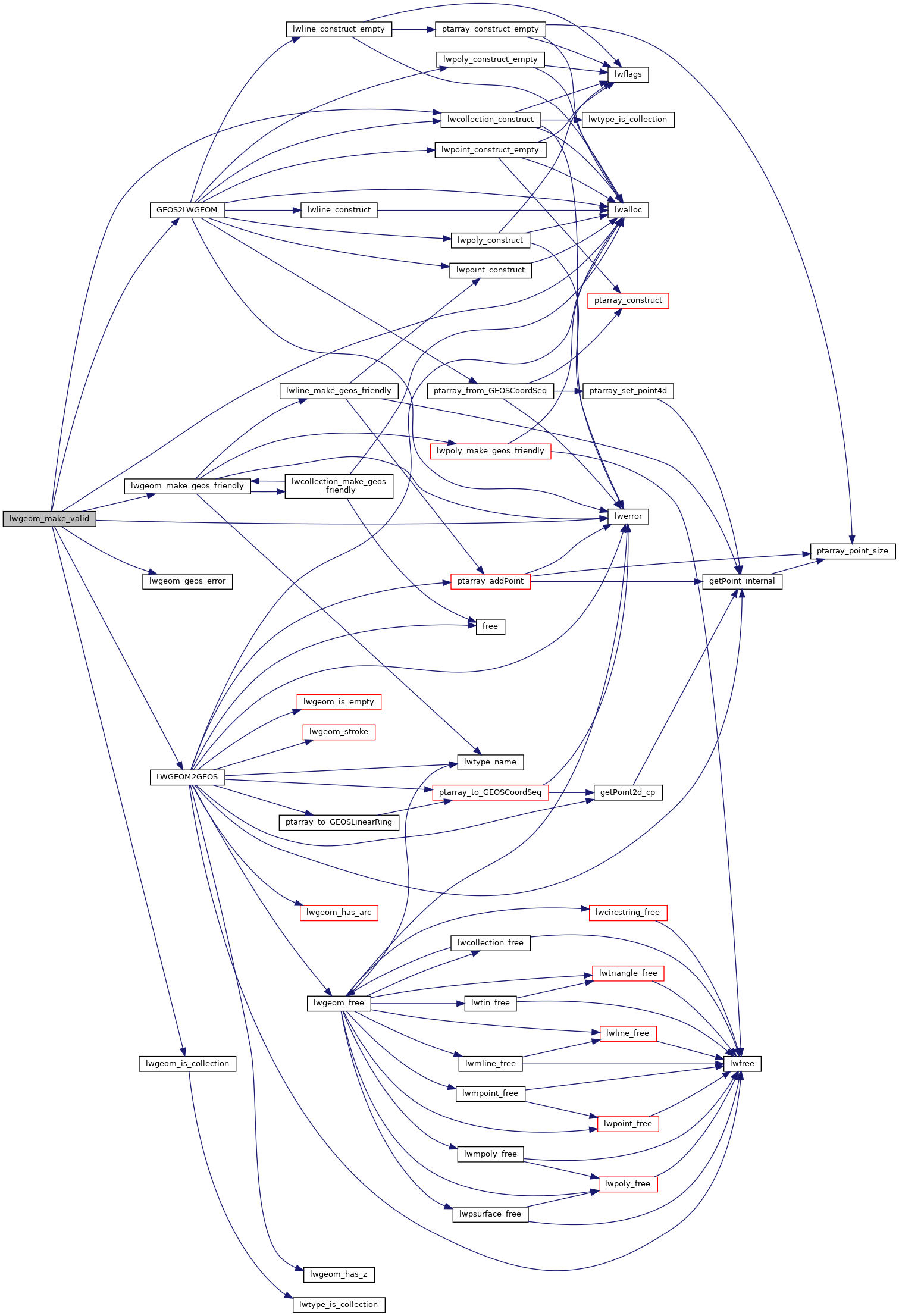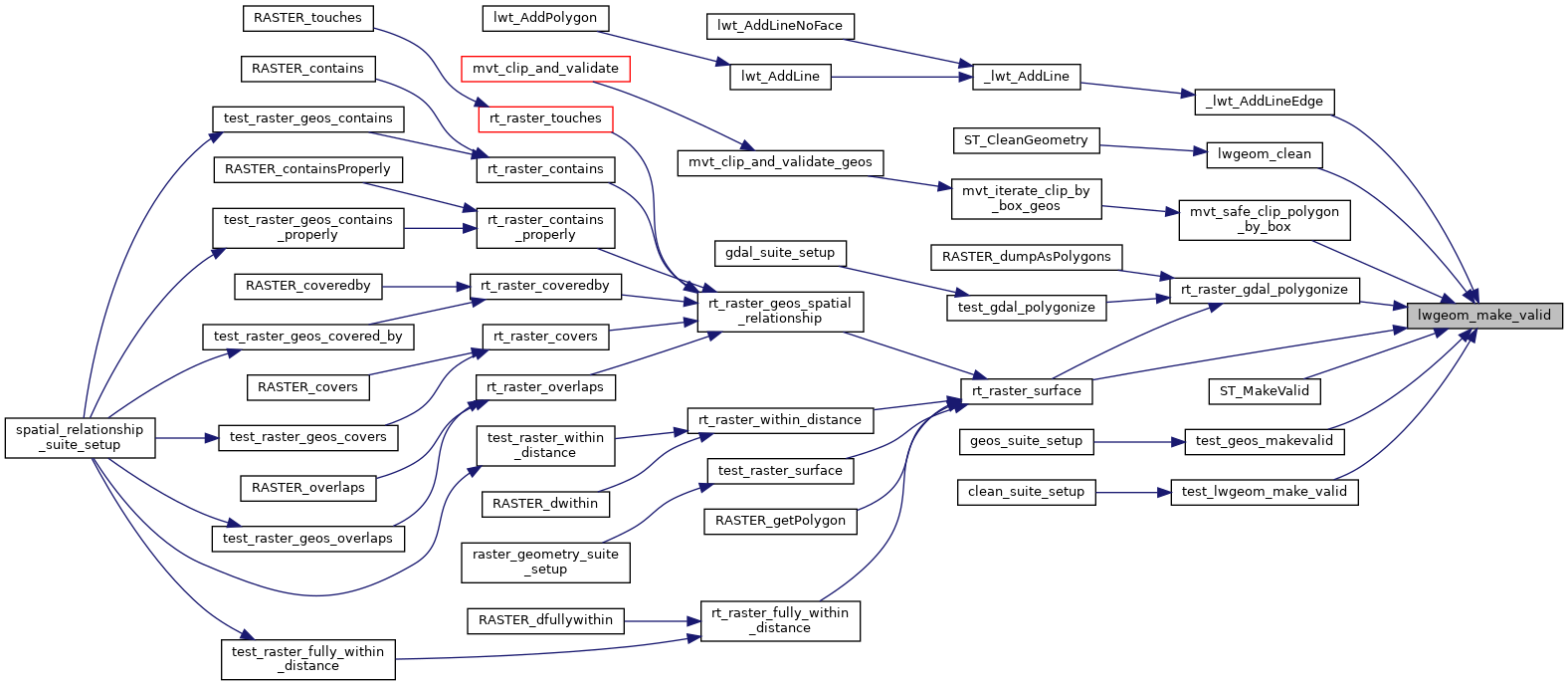◆ lwgeom_make_valid()
Attempts to make an invalid geometries valid w/out losing points.
Definition at line 854 of file liblwgeom/lwgeom_geos_clean.c.
char lwgeom_geos_errmsg[LWGEOM_GEOS_ERRMSG_MAXSIZE]
Definition: liblwgeom/lwgeom_geos.c:40
GEOSGeometry * LWGEOM2GEOS(const LWGEOM *lwgeom, uint8_t autofix)
Definition: liblwgeom/lwgeom_geos.c:390
LWGEOM * GEOS2LWGEOM(const GEOSGeometry *geom, uint8_t want3d)
Definition: liblwgeom/lwgeom_geos.c:166
static LWGEOM * lwgeom_make_geos_friendly(LWGEOM *geom)
Definition: liblwgeom/lwgeom_geos_clean.c:126
int lwgeom_is_collection(const LWGEOM *lwgeom)
Determine whether a LWGEOM can contain sub-geometries or not.
Definition: lwgeom.c:1079
LWCOLLECTION * lwcollection_construct(uint8_t type, int32_t srid, GBOX *bbox, uint32_t ngeoms, LWGEOM **geoms)
Definition: lwcollection.c:42
uint8_t MULTITYPE[NUMTYPES]
Look-up for the correct MULTI* type promotion for singleton types.
Definition: lwgeom.c:336
Definition: liblwgeom.h:443
References LWGEOM::bbox, LWGEOM::flags, FLAGS_GET_Z, GEOS2LWGEOM(), lwalloc(), lwcollection_construct(), LWDEBUG, LWDEBUGF, lwerror(), LWGEOM2GEOS(), lwgeom_geos_errmsg, lwgeom_geos_error(), lwgeom_is_collection(), lwgeom_make_geos_friendly(), MULTITYPE, LWGEOM::srid, and LWGEOM::type.
Referenced by _lwt_AddLineEdge(), lwgeom_clean(), mvt_safe_clip_polygon_by_box(), rt_raster_gdal_polygonize(), rt_raster_surface(), ST_MakeValid(), test_geos_makevalid(), and test_lwgeom_make_valid().
Here is the call graph for this function:

Here is the caller graph for this function:
